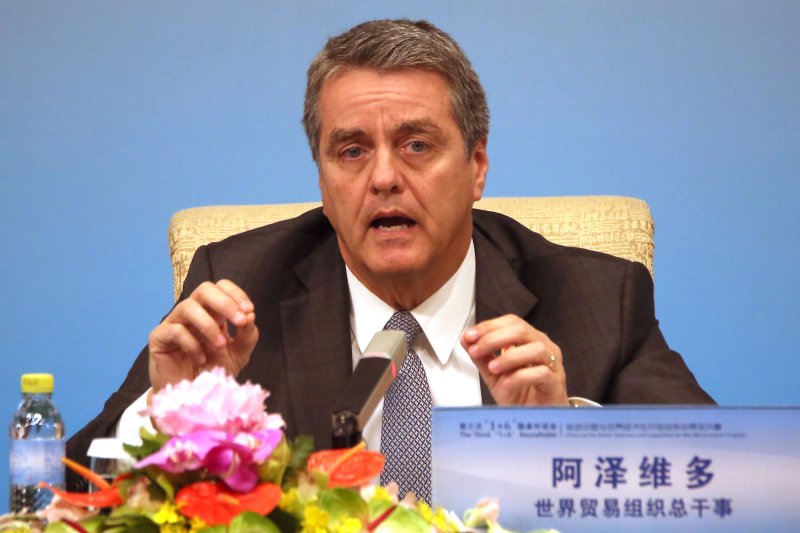World Trade Organization Director-General Roberto Azevedo said his resignation is not health or politically motivated. File Photo by Stephen Shaver/UPI |
License Photo
May 14 (UPI) -- World Trade Organization Director-General Roberto Azevêdo on Thursday announced plans to step down later this year, one year before his term's expiration.
In a statement to the WTO's members, he said he'll resign Aug. 31, three years into his second four-year term.
"This is a decision that I do not take lightly," he said. "Between the lockdown and my recent knee surgery, I have had more time than usual for reflection.
"And I reached this decision only after long discussions with my family -- my wife here in Geneva, [Switzerland], and my daughters and my mother in Brasilia, [Brazil]. It is a personal decision -- a family decision -- and I am convinced that this decision serves the best interests of this organization."
Azevêdo said that despite his recent surgery, his decision isn't health-related. He said he's also not planning to pursue a political career.
Josh Lipsky, director of the global business and economics program at the Atlantic Council, told The New York Times that Azevêdo's departure during the crippling economic impact of the coronavirus isn't ideal.
"To lose the leader of the WTO is a serious blow," he said. "There is a broken global trading system, and it needs leadership to fix it."
In October, the WTO cut its global growth forecast to the lowest level in a decade, warning additional tariffs in the U.S.-China trade war could lead to a "destructive cycle of recrimination."
"The darkening outlook for trade is discouraging but not unexpected," Azevêdo said at the time. "Trade conflicts heighten uncertainty, which is leading some businesses to delay the productivity-enhancing investments that are essential to raising living standards. Job creation may be hampered as firms employ fewer workers to produce goods and services for export."















